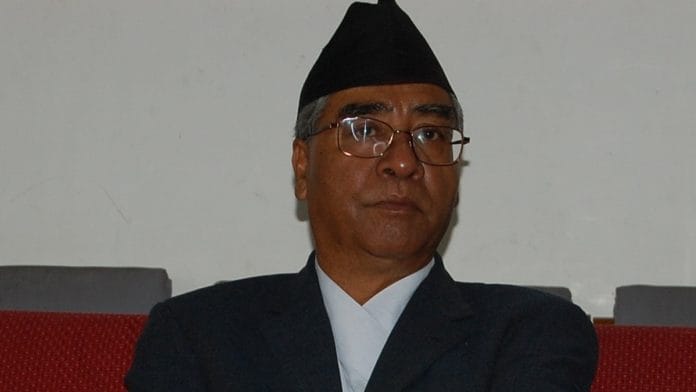New Delhi: Nepal’s Parliament Sunday ratified a contentious $500 million US government aid grant, after weeks of back and forth among the ruling coalition, the country’s local media reported.
The grant, known as the Millennium Challenge Corporation Nepal Compact (MCC-Nepal), was signed by Washington and Kathmandu in 2017 and aimed to upgrade the country’s infrastructure. However, it faced many delays of ratification by Nepal’s parliament.
While Prime Minister Sher Bahadur Deuba and his party, the Nepali Congress, supported ratification of the grant. However, Deuba’s key coalition partners, namely the Communist Party of Nepal-Maoist Centre (CPN-MC) and the Communist Party of Nepal-Unified Socialist (CPN-US), strongly opposed it.
The issue had also sparked mass protests last week over fears that the grant could endanger Nepal’s sovereignty.
Leaders of the coalition government eventually endorsed the grant Sunday, after including a “interpretive declaration” clause to the proposal.
According to international law, if a declaration purports to modify a particular treaty, it is a reservation. However, if it purports to clarify the interpretation of the treaty, it is an “interpretative declaration”. This kind of declaration seeks to specify or clarify the meaning or scope of a treaty or of certain provisions.
Some media reports called the ratification a “coup” or an unexpectedly successful achievement on Prime Minister Deuba’s part, as he was not only able to stick to Washington’s ratification deadline but also prevent his coalition from falling apart over the divisive issue.
The US government had set February 28 as the deadline to endorse the grant project.
The MCC-Nepal grant aims to develop a major electricity grid in Nepal and boost economic growth through improvements in highway connectivity.
Also read: Is it gift or Pandora’s box, asks China on US grant aid to Nepal
‘Interpretive declaration’
Due to repeated delays on Kathmandu’s part to ratify the document, with some Nepalese lawmakers fearing the clauses under the grant agreement threaten national interests, Washington repeatedly sent top officials to the South Asian country over the past six months. The US officials assured that the MCC only aims to assist Nepal’s development activities.
Meanwhile, some politicians from Nepal’s Maoist Centre reportedly held virtual meetings with officials from China’s Communist Party too.
When the US grant agreement was being deliberated in parliament Sunday, Chairman of the Maoist Center Nepal Prachanda had remarked, “Interpretive declaration is the only way to save the alliance and solve the problem of MCC in Nepal.”
Nepal’s parliament eventually agreed to vote in favour of the MCC with this particular criterion.
The Nepalese Cabinet’s 12-point declaration clarifies the country’s understanding that the MCC compact is just a development grant and is not above the country’s constitution as well as not part of any strategic, military or security alliance such as Washington’s Indo-Pacific Strategy.
More so, the interpretation states Nepal can terminate the US grant agreement if there is anything that goes against the country’s national interests.
Some experts like Geeta Kochhar, Assistant Professor at JNU, have remarked that all in all, nothing in the MCC document can be changed or altered.
I am re-reading my tweet of Feb 14, 2022 regarding Nepal's ratification of #MCC and finding most of news headlines as I stated. Whether "interpretive declaration" or wht, point is nothing in the MCC document cn be changed/altered, so be it as it is. #Nepal #US https://t.co/co5QZPyPNY
— Geeta Kochhar गीता कोछड़ (@KangJing) February 27, 2022
Also read: Russia-Ukraine crisis: Nepal urges all sides to exercise restraint






